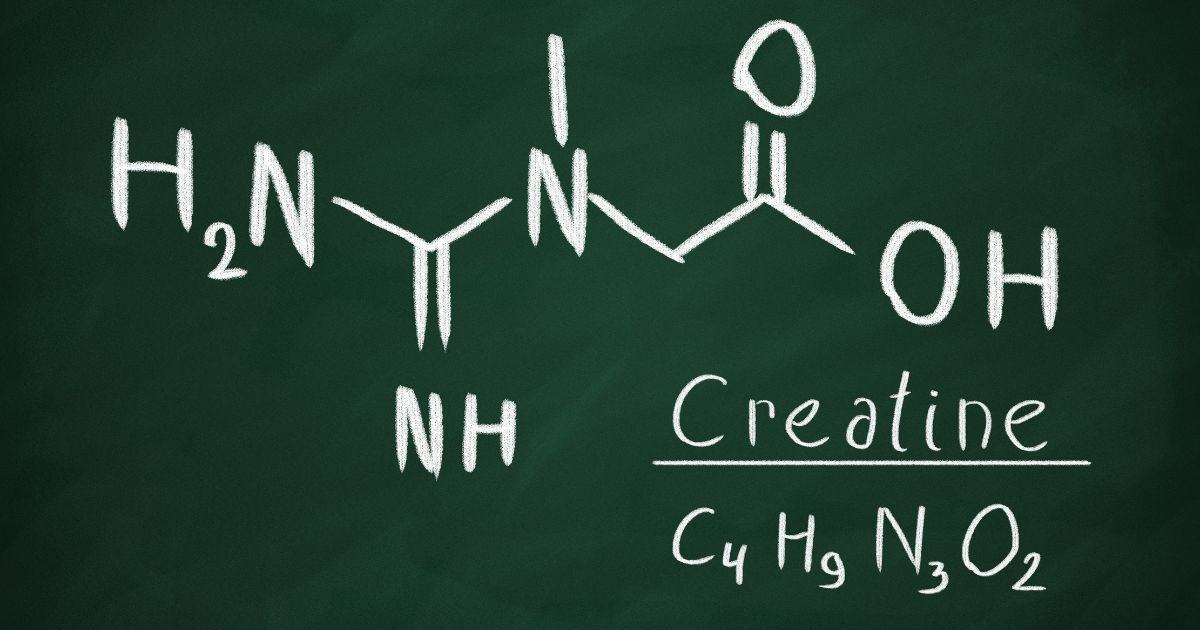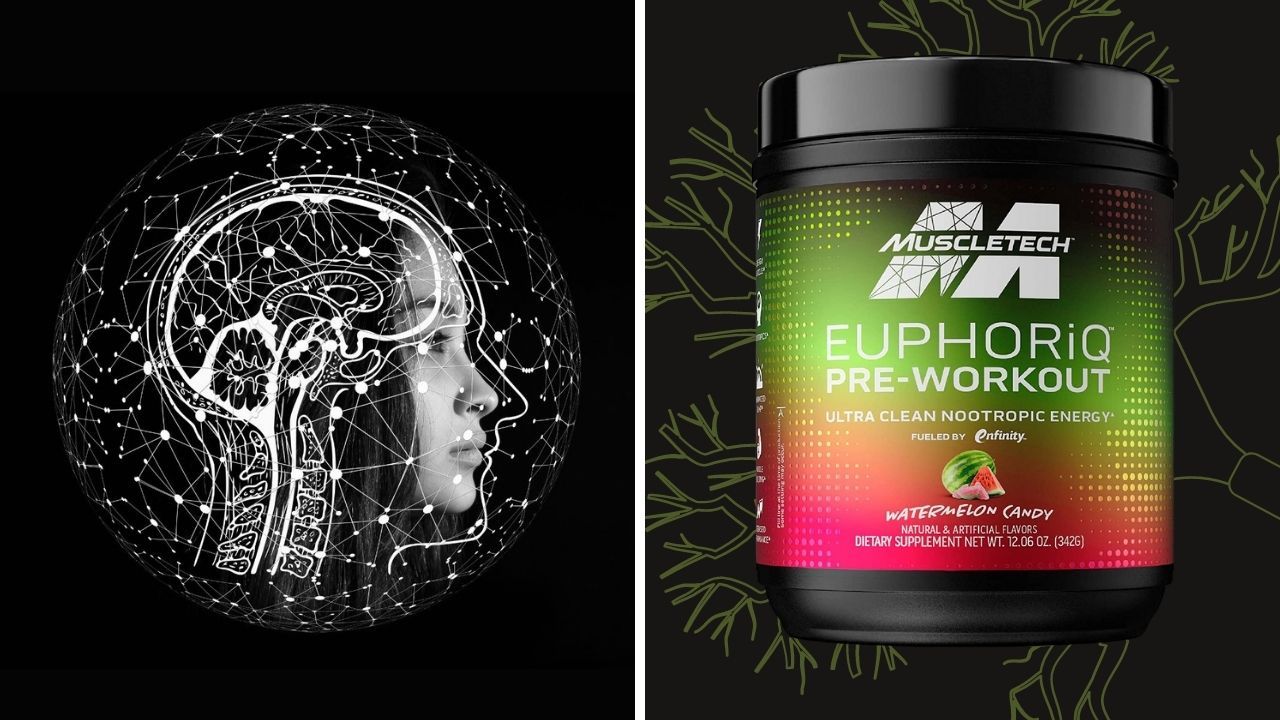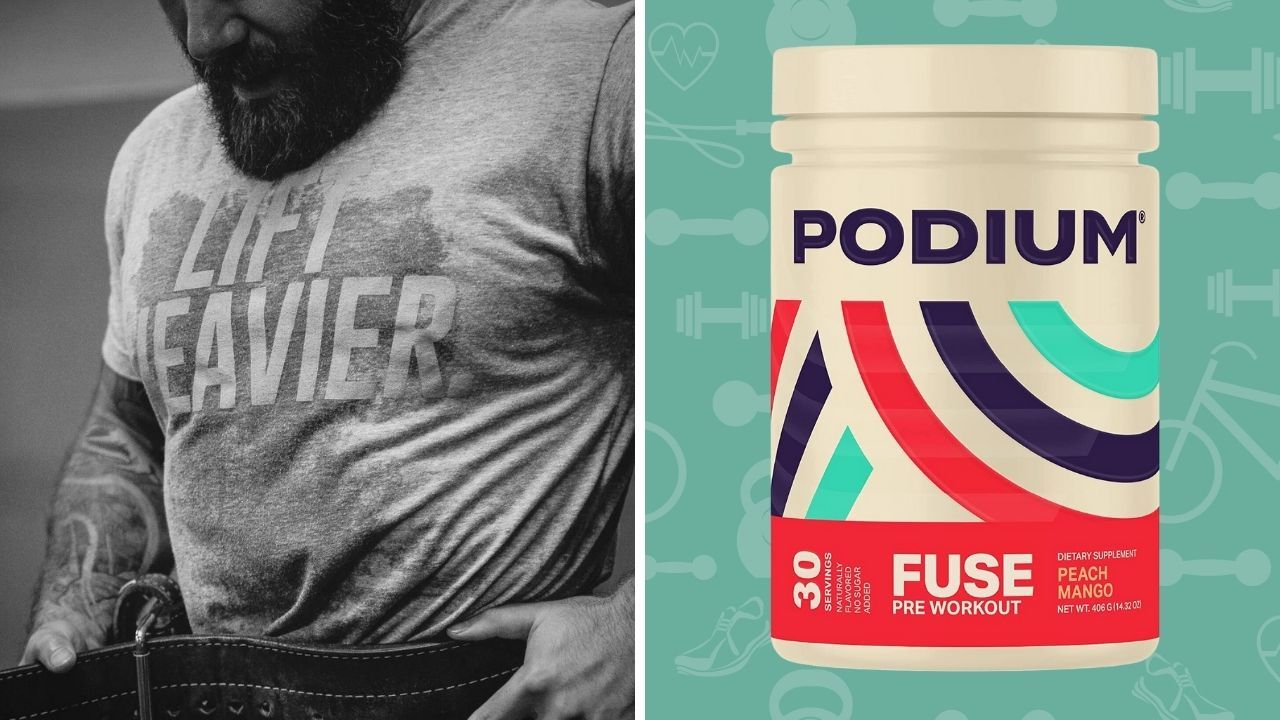
Unlock Your Potential: Creatine vs Pre-Workout Explained
Get the rundown on creatine vs pre-workout. Which is the ultimate supplement for muscle growth and performance? Find out now.
So you're looking to up your workout game and have probably heard about creatine and pre-workout supplements.
Maybe you're wondering what they are, how they work, or if they're right for you. Well, you've come to the right place!
Understanding the science behind these supplements is essential, so you can make an informed decision about your fitness journey.
We're also going to bust some myths about these supplements that you may have heard.
So, buckle up and get ready for some knowledge bombs!
What are Creatine and Pre-workout Supplements?

Creatine: The Power Booster
Creatine is a substance that your body naturally produces and uses to produce energy.
It's found in your muscle cells and helps them produce more ATP, the primary molecule your body uses for energy.
In simpler terms, creatine gives you the extra push you need to lift that last rep or sprint that final stretch.
Pre-workout Supplements: The Energy Igniters
Now, onto pre-workout supplements.
These are typically powders mixed with water and consumed before exercise.
They're designed to increase your energy, endurance, strength, and focus during a workout.
Each ingredient has its unique way of helping you get the most out of your workout.
So, whether you're looking for a little extra push from creatine or a full-on energy boost from a pre-workout supplement, understanding how these supplements work can help you decide which one is right for you.
The Science Behind Creatine

Let's dive a little deeper into creatine.
As we mentioned, it's naturally produced in your body, mainly in the liver, kidneys, and pancreas, and it plays a significant role in energy production.
It's stored in your muscles as phosphocreatine and used to generate ATP (adenosine triphosphate), which is your body's main source of energy.
Now, when you take a creatine supplement, like creatine monohydrate, you're essentially increasing your stores of phosphocreatine.
These additional creatine stores can be used to produce more ATP during high-intensity exercise. This means that with more ATP, you can work out harder and longer.
Cool, right?
So what does this mean for your workouts?
Numerous studies have shown that creatine supplementation can improve strength, muscle mass, and exercise performance.
It can also aid in recovery, injury prevention, and even enhance mental focus.
The Science Behind Pre-Workout Supplements
Pre-workout supplements are a cocktail of ingredients designed to boost your workout.
The exact composition can vary, but key components usually include caffeine, beta-alanine, nitric oxide precursors, and amino acids.
- Caffeine is a well-known stimulant that can increase alertness and ward off feelings of fatigue. Giving you a burst of energy and helping you stay focused on your workout.
- Beta-alanine is an amino acid that helps fight muscle fatigue by buffering the acid in your muscles during high-intensity exercise.
- Nitric oxide precursors, such as L-arginine or citrulline, increase blood flow to your muscles, which can enhance performance and speed up recovery.
- Branched-chain amino acids (BCAAs) provide energy and help support muscle growth.
The benefits of pre-workout supplements are also backed by science.
- Studies have shown that they can improve physical performance, reduce perceived exertion, and speed up recovery time [source].
- They can also help increase focus during workouts, making your gym session more productive.
Remember, while both creatine and pre-workout supplements can enhance your workouts, it's important to use them responsibly. Always follow the manufacturer's instructions, and consult with a healthcare professional if you have any concerns.
Comparing Creatine and Pre-workout

Now that we've gone over the science behind creatine and pre-workout supplements, let's make a direct comparison.
Both creatine and pre-workout supplements aim to enhance athletic performance, but they do so in different ways.
- Creatine works by increasing your muscles' phosphocreatine stores, allowing for more ATP production during high-intensity exercise. This means you can push harder and lift heavier.
- Pre-workout supplements, on the other hand, contain a mix of ingredients designed to boost energy, endurance, and focus. Caffeine provides a burst of energy and increased alertness, beta-alanine delays muscle fatigue, and nitric oxide precursors improve blood flow.
So, when might one be preferred over the other?
If your goal is to increase strength and muscle mass, creatine may be your best bet.
On the other hand, if you're looking for an overall boost in energy and performance during your workout, a pre-workout supplement might be more beneficial.
Myth-Busting: Creatine Misconceptions
It's time to bust some myths about creatine. There's a lot of misinformation out there, so let's set the record straight.
Myth 1: Creatine is a steroid
Creatine is not a steroid; it's a naturally occurring compound in your body and in foods like meat and fish. Unlike anabolic steroids, creatine does not alter your hormone levels or have the same risks associated with steroid use.
Myth 2: Creatine causes kidney damage
Studies have shown that creatine supplementation does not harm the kidneys in healthy individuals. However, if you have a pre-existing kidney condition, it's crucial to consult with a healthcare professional before starting any new supplement regimen.
Myth 3: Creatine leads to weight gain
While creatine can cause a slight increase in body weight due to water retention in your muscles, this is not the same as gaining fat. In fact, creatine can actually help increase lean muscle mass.
Myth-Busting: Pre-workout Misconceptions
Just like with creatine, there are a few misconceptions about pre-workout supplements that we need to address.
Myth 1: More is always better
Pre-workout supplements are designed to be taken in specific doses. Taking more than recommended can lead to adverse effects like jitteriness, insomnia, or gastrointestinal distress. Always follow the manufacturer's instructions for use.
Myth 2: Pre-workouts are only for serious athletes
While athletes may benefit from pre-workout supplements, they can also benefit anyone looking to enhance their workout performance. Whether you're a gym newbie or a seasoned pro, a pre-workout can help you push through challenging workouts and reach your fitness goals.
Myth 3: All pre-workouts are the same
Not all pre-workouts are created equal. Different brands may contain different ingredients and dosages. It's important to read the label and understand what you're putting into your body.
Creatine vs Pre-workout: Which is Right for You?

Choosing between creatine and pre-workout will depend on several factors, including your fitness goals, how your body responds to these supplements, and personal preference.
- If your goal is to build muscle and strength, creatine might be a good fit for you.
- If you're looking for a general boost in energy and workout performance, a pre-workout supplement might be the better choice.
- To achieve the best of both worlds, there's no need to choose between the two. Certain pre-workout formulas even include creatine, but I personally prefer it without, as it allows me to tailor the dosage according to my specific requirements.
Remember, everyone is different. What works best for one person may not work as well for another. It's important to listen to your body and adjust your regimen as needed.
Frequently Asked Questions
Does creatine work as pre-workout?
Yes, creatine can be used as a pre-workout to help build strength and muscle mass during high-intensity training. However, it works differently than typical pre-workouts and may be in some pre-workout supplements already.
Is it better to take creatine with pre-workout or protein?
Both creatine with pre-workout and creatine with protein can be beneficial. Creatine with pre-workout can boost your energy during workouts, while taking creatine with protein helps muscle growth and muscle recovery.
Are there any side effects of creatine?
Yes, some possible side effects of creatine include dehydration, upset stomach, muscle cramps, and weight gain [source].
What's better creatine or protein powder?
Both creatine and protein powder have their unique benefits. Creatine helps improve strength and high-intensity exercise performance, while protein powder supports muscle growth and repair.
Does creatine give you energy?
Yes, creatine does give you energy. It helps enhance your workout performance and reduces tiredness [source].
Bottom Line
We've covered a lot of ground today!
We've explored the science behind pre-workout and creatine supplements, debunked common myths, and given you some pointers on how to choose between them.
The most important takeaway?
Knowledge is power. Understanding the science behind these supplements and dispelling myths can help you make informed decisions about your fitness journey.
Remember, before starting any new supplement regimen, it's always a good idea to consult with a healthcare professional or a fitness expert. They can provide personalized advice based on your health history and fitness goals.
Stay strong and keep pushing your limits!
Before You Go...







